Introduction
Women’s entrepreneurship in Sudan is not a new phenomenon, but rather a continuation of a long history of women participating in the informal economy, supporting their families and driving local markets through small businesses launched from their homes or modest stalls in popular markets. However, what we witness today goes beyond the traditional pattern, as women are now establishing specialized brands and redefining the concept of entrepreneurship within a politically and economically unstable local context.
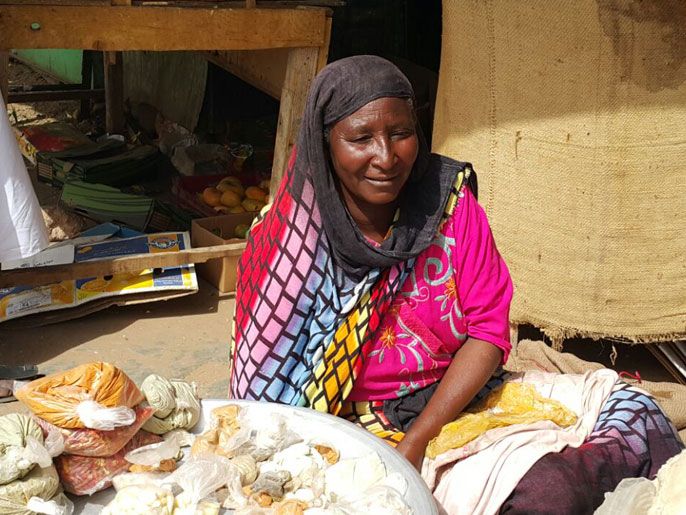
A Sudanese woman sells popular local products on a street in the capital. Source: Al-Jazeera.net
Among the contemporary examples is Awadia Koko, known as "Awadia Samak", who began selling fish in the local market and became a symbol of hardworking women. She eventually received local and international recognition for her role in supporting working women and creating job opportunities.
World Bank reports indicate that women in Sudan face major challenges in entrepreneurship, with only 3% of companies having a woman as a top manager, and just 8% including women among their principal owners. Nevertheless, initiatives such as the Accelerating Women Entrepreneurs and Access to Finance (AWEAF) project aim to empower women by providing training and financial support, thereby enhancing their economic role.
Through this article, I aim to shed light on Sudanese women who have turned their passion and expertise into real economic ventures—large, medium, and small—that produce, export, and employ, despite all obstacles. These women did not wait to be empowered; they created empowerment for themselves. Behind the scenes, and in the face of weak infrastructure and limited support, women’s entrepreneurship emerges as a true economic force reshaping the economic and social landscape in Sudan.
Large-Scale Projects
Alaa Hamadto: A Health-Focused Venture Born from Local Innovation
Alaa Hamadto is the founder and CEO of Solar Food, a startup specializing in the production of dried foods using solar drying technologies. The company aims to reduce agricultural product loss in Sudan, estimated at up to 40% of total production, by providing sustainable, eco-friendly solutions for small-scale farmers.
Since its establishment in 2017, the company has expanded its product line to more than 22 items and began exporting to international markets, including the United Kingdom, United Arab Emirates, Qatar, and Saudi Arabia. However, the war that broke out in Sudan led to the complete destruction of its factory located in the industrial area of Bahri, forcing her to leave the country temporarily.

Photo shows the destruction of the Solar Foods factory in the Khartoum Bahri Industrial Zone.
Despite the challenges, Alaa decided to return to Sudan and set up an alternative factory in Kassala. The new project has faced major difficulties related to the business environment, most notably inflation, equipment shortages, poor infrastructure, power outages, and direct security threats such as airstrikes.
Hamadto noted that the situation requires self-driven initiatives for recovery, in the absence of effective institutional or international support.
Through her participation in international forums, most notably the Global Entrepreneurship and Investment Forum in Manama, Alaa has highlighted the shared challenges faced by women in conflict zones. She affirmed that Sudanese women possess the competence and resilience needed to revive their economic activity despite the exceptional circumstances the country is experiencing.
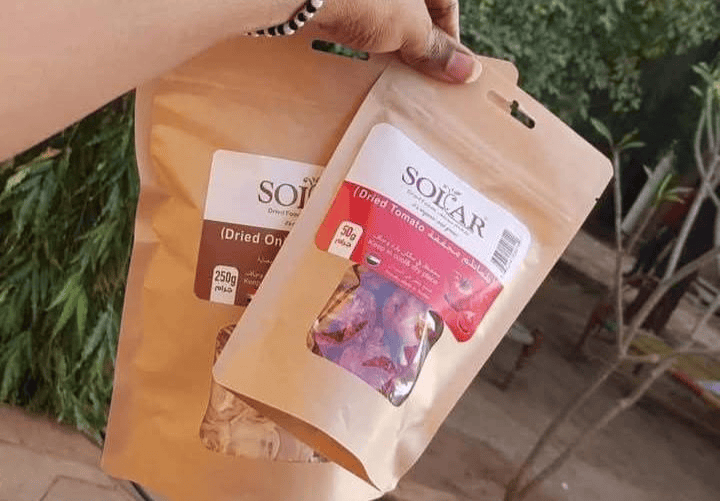
Solar Foods products. Source: Solar Foods account in Instagram
Medium-Sized Projects
Nawar Kamal: Jewelry That Tells the Story of a Nation
At the age of fourteen, while wandering through the colorful streets of Ghana, Nawar Kamal discovered a world she had never known before, the world of jewelry made from recycled glass and copper. That moment of discovery marked the beginning of a long journey of passion and creativity. It wasn’t just a path toward a craft, but toward identity, as Nawar decided to blend what she saw there with her rich Sudanese heritage.
From that experience, the brand NK Jewelry was born, a business that reflects Nawar’s personality and spirit. Every piece she designs tells a story about Sudan, about Africa, about the environment, and about art as a means of expression and change. Nawar uses eco-friendly materials, repurposing glass and copper to create elegant pieces that express heritage with a contemporary spirit.
From a child’s passion to a recognized brand, Nawar has come a long way, becoming one of Sudan’s most prominent young female entrepreneurs. In her designs, the Ghanaian bead meets the Sudanese touch, and the lines between old and new, local and global, are beautifully blurred. Through her work, Nawar offers not just jewelry, but stories to be worn and lived.
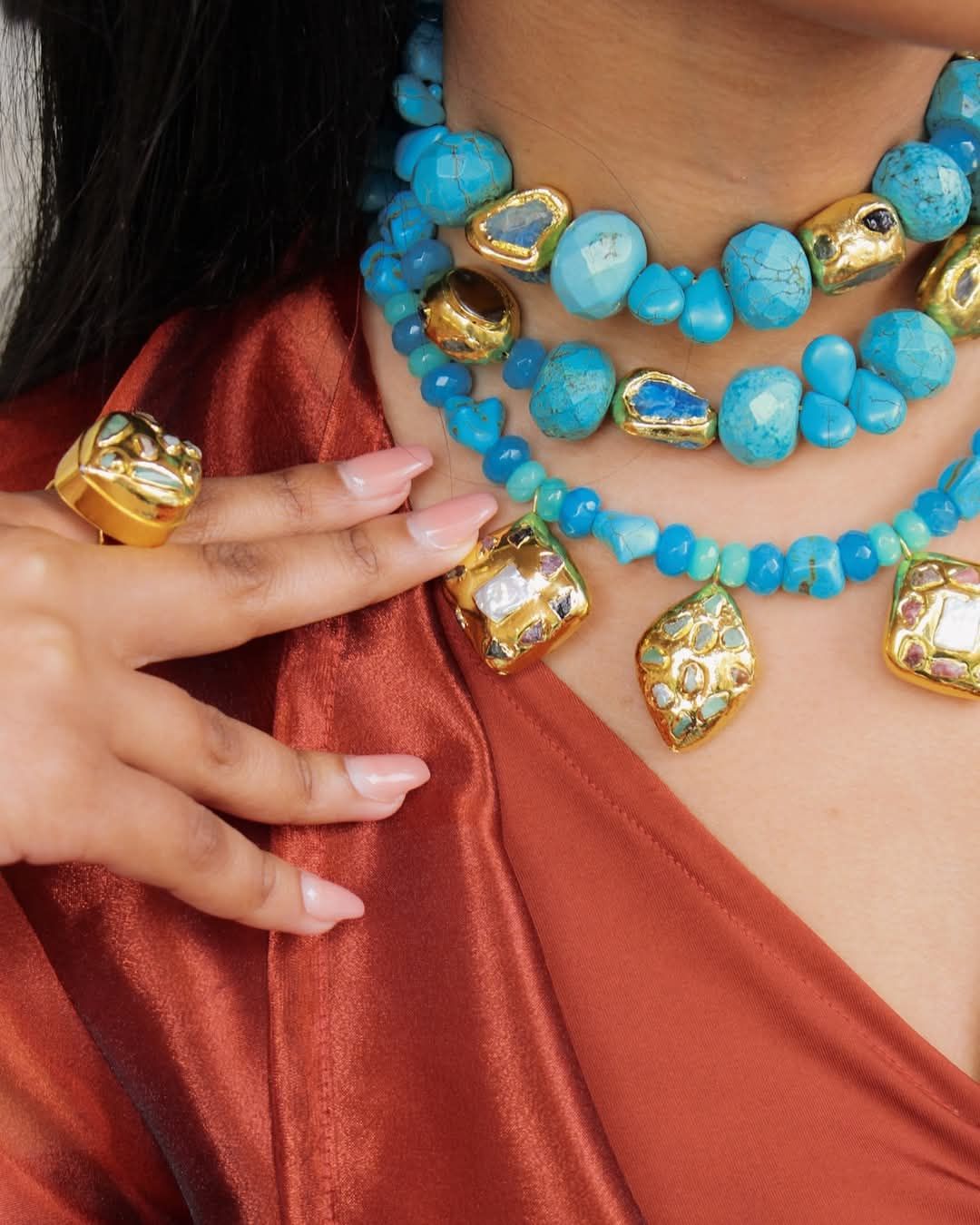
One of NK Jewellery's designs. Source: NK Jewellery's Facebook page
Amna Hamadto: Fashion That Embodies Resilience and Beauty
Amna Hamadto began her journey as a beauty blogger, but her passion for elegance and identity led her down a different path. In 2018, she founded her own fashion brand, Amna’s Wardrobe, without any prior planning، driven purely by personal need. She was searching for modest clothing that reflected her taste and expressed her Sudanese identity, but found none. So she started designing for herself, and this personal act soon evolved into a full-fledged project that resonated widely.
In her designs, Amna blends hand-embroidered fabrics and patterns inspired by Sudanese heritage with contemporary cuts suitable for women’s everyday lives and special occasions. Through her platform, many women from Sudanese communities in the Gulf and Europe found relatable styles in her designs.
Her latest Ramadan collection for 2025, Maymouna, was more than just clothing, it was a message of resilience and elegance in times of crisis. The collection received wide engagement on social media and affirmed that fashion can be more than appearance, it can be memory, identity, and a mobile culture.
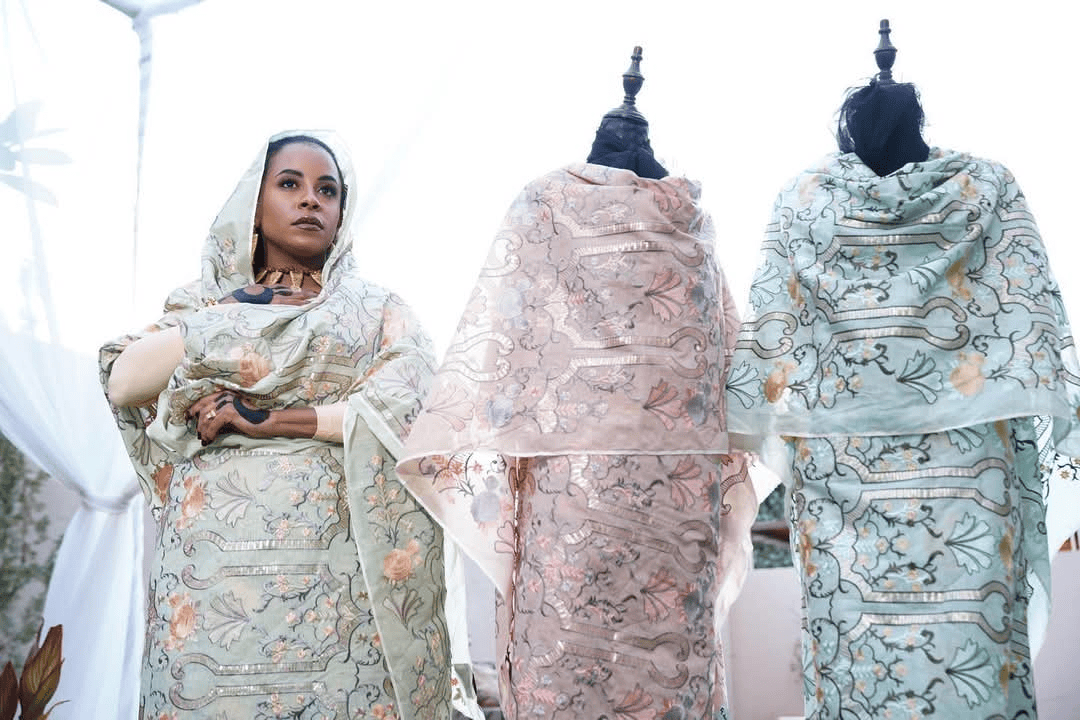
One of Amna Hamadto’s designs from Amna’s Wardrobe. Source: Amna Hamadto’s Facebook account
Walaa Al-Badri: A Local Venture Turning into a Promising Brand
From Omdurman, Walaa Awad Ali Mohamed Salih Al-Badri began her entrepreneurial journey in 2015 with a natural passion for fashion and business. She launched her first project under the name "Oxygena Fashion", an online store showcasing everything related to fashion, clothing, shoes, bags, and jalabiyas.
Over time, the venture grew into a physical shop located in a permanent bazaar in the Imtidad Nasser area. She imported her products from countries like Turkey, Egypt, and Saudi Arabia, successfully balancing her job with managing her own business, driven by a love for marketing and creativity in sales.
However, the war changed everything. In a single day, she lost it all—her shop, her storage space, and her merchandise. With her primary source of income gone, she was forced to leave Sudan and seek refuge in Egypt. There, Walaa didn’t wait for an opportunity, she created one. In a new country and under harsh conditions, the idea returned: a portable, sustainable project, crafted with her own hands. She noticed the absence of foundation shades suitable for darker skin tones in the market, and from that gap, the idea was born: to produce Sudanese cosmetics that reflect the diversity of our skin tones and identity.
Starting from scratch, she enrolled in training courses and developed her own makeup brand. No external funding, no institutional support, only her willpower, her family’s support, and what was left of her previous capital. In a short time, she succeeded in building a recognizable name, a trusted quality, and a brand that speaks for her and thousands of Sudanese women.
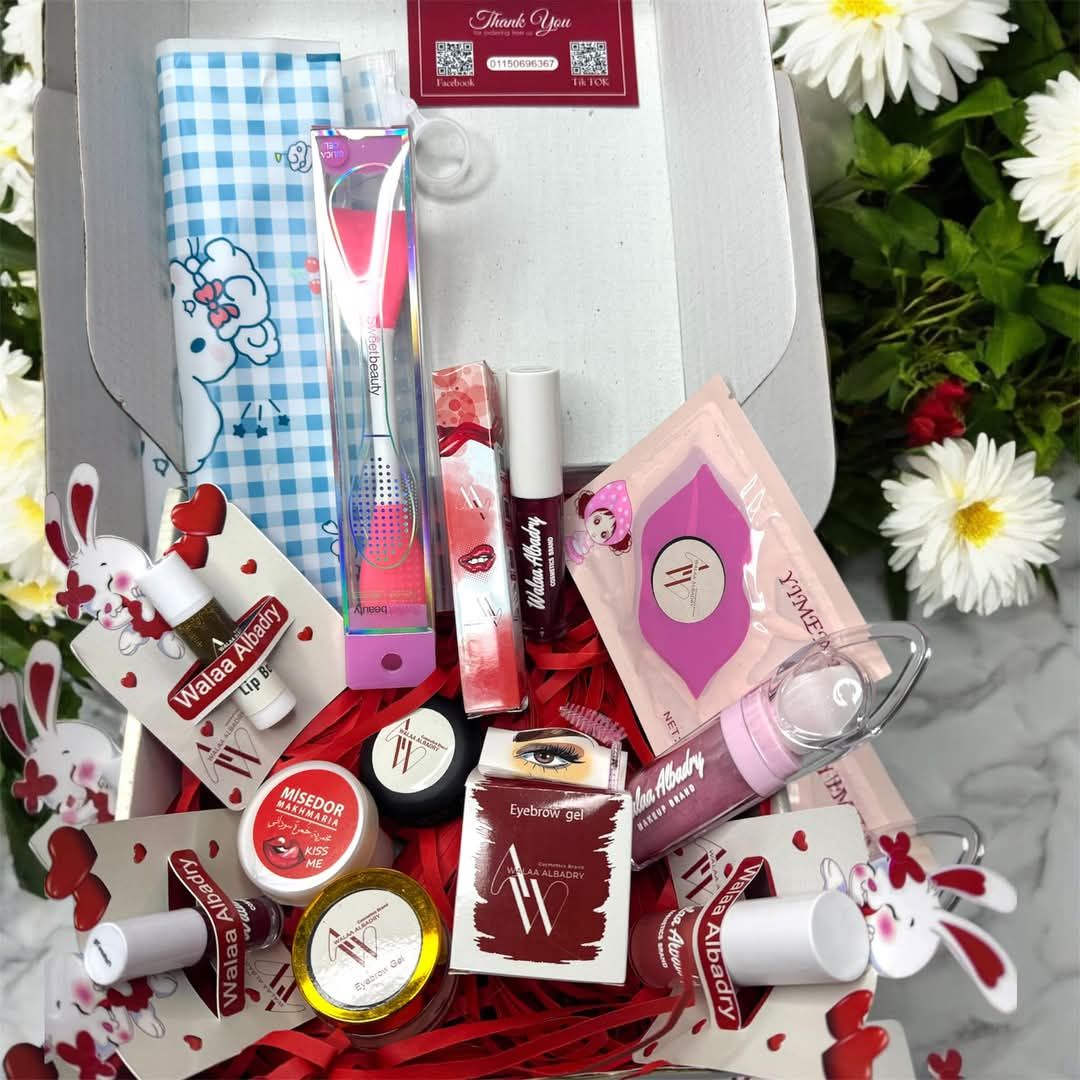
Cosmetic products from Walaa Al-Badri’s brand. Source: Walaa Al-Badri page
Small-Scale Projects
Esraa Mohamed: A Young Woman Breaks the Mold and Opens a Korean Restaurant in Eastern Sudan
Esraa Mohamed, a young woman from Kassala State, found in cooking a path to resilience and progress. Just a few months after the war broke out, and with the first salary she earned while working with her sister, she launched her home-based project preparing Asian dishes. This would later grow into “Mimi Kori”, the first kitchen in Kassala specializing in Korean cuisine.
The beginnings were modest, just one dish, but behind it were more than five years of experimentation and passion for Korean and Chinese cooking. As the project grew, the idea of opening a restaurant came to her. It became a reality after a partnership was proposed to her just five months before opening. On February 15, Mimi Kore officially opened its doors, offering a new culinary experience to the city’s residents.
Today, Esraa prepares more than ten types of international dishes such as tteokbokki, ramyeon, corn dog, dumplings, katsu, kimchi, and mochi. From the beginning, she made sure to provide the proper tableware, even ordering wooden chopsticks through special delivery to complete the authentic Asian experience.
The challenge wasn’t the cooking itself, but the circumstances. Frequent power outages in Sudan forced her to reduce production, so she adopted a weekly pre-order system to maintain both quality and variety. Despite difficulties in refrigeration and the shortage of some ingredients, Esraa managed to sustain her project and satisfy her customers, who found in her food a new and unique experience.
Proud of what she has accomplished, she continues to refine her recipes, experimenting with new dishes to add to the Mimi Kori menu, firm in her belief that true flavor begins with passion.
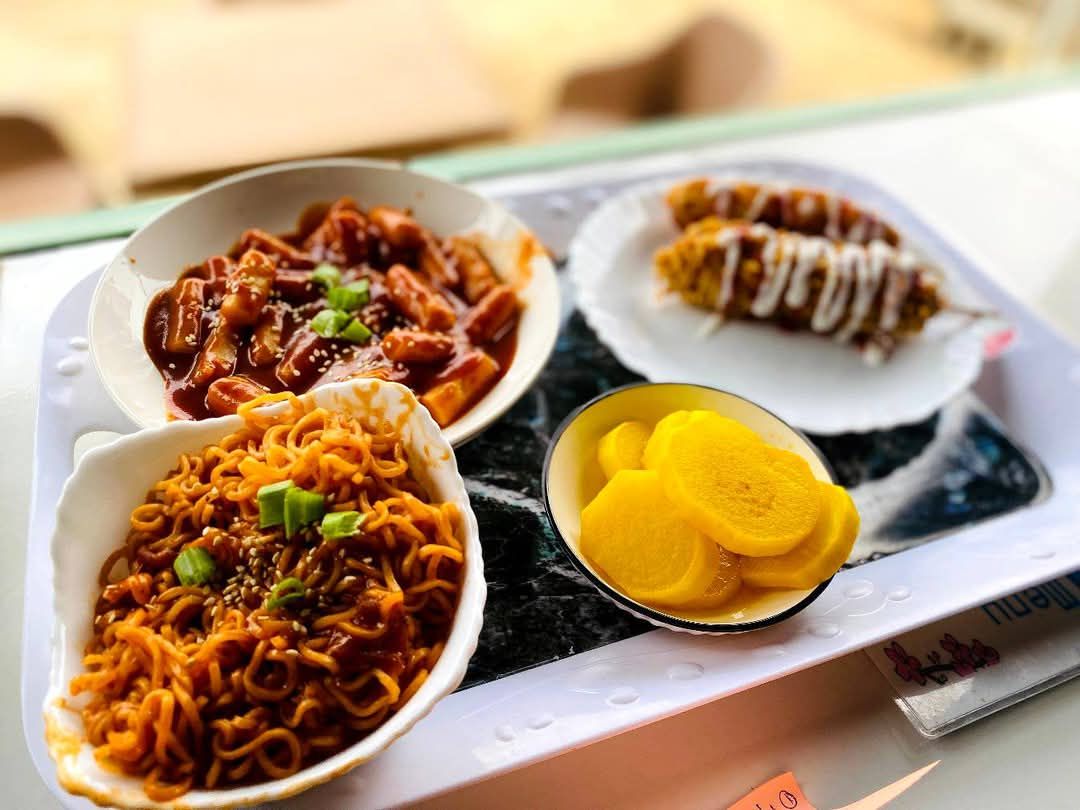
Photo of several dishes from the restaurant. Source: Mimi Kori Restaurant Facebook Page
Lina Salah: From Hobby to Business
Lina Salah, from Kosti, works from home creating crochet pieces and beaded handbags. What began as a hobby in 2019 was never intended to become a business. However, with the outbreak of war and the worsening economic situation, she decided to turn her craft into a source of income.
She received strong support from her family and those around her, but the project faced major challenges, such as rising material costs and the difficulty of obtaining supplies due to the economic blockade on White Nile State, at a time when people were mostly focused on essential needs. Despite this, Lina continued working and says her average monthly profit is around 250,000 Sudanese pounds, a solid figure for a small project launched under exceptional circumstances.
Today, Lina is widely known within the state, and her products are seeing increasing demand from customers. She believes that design and creativity can open doors, and she is currently working to expand her business to reach other states.
Although she has not received any formal support so far, Lina believes her project has growth potential and remains hopeful that her products will one day become part of the local fashion scene across Sudan.
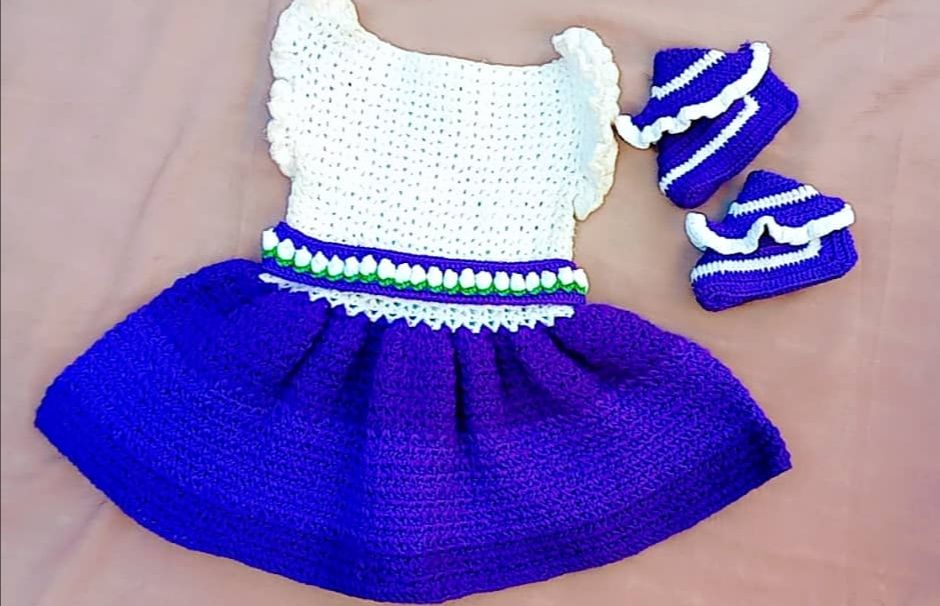
Photo of one of Lina Salah’s designs. Source: Lina Salah
Investment Laws Between Theoretical Neutrality and Practical Discrimination
Although Sudan’s 2021 Investment Promotion Act does not contain any explicit gender-based discrimination, the regulatory environment it governs imposes indirect restrictions that limit women’s representation in entrepreneurship. According to the Global Entrepreneurship Monitor (GEM 2020), 66% of women rely on personal savings to finance their ventures, while only 17% have received bank financing—largely due to collateral requirements tied to property ownership, which many women lack because of unequal asset distribution within families or society.
World Bank reports also show that starting a small business in Sudan requires between 56 and 66 administrative procedures involving federal and local authorities. This creates an added burden on women, considering their social and familial responsibilities.
In terms of financing, banking requirements—though theoretically neutral—make it harder for women to access funding, leading to their underrepresentation in the formal investment sector. Cultural and social constraints also have a cumulative impact; until recently, women faced legal restrictions on mobility and signing official documents in their own name, which hindered their active participation in the economy. Research institutions recommend adopting supportive policies that include gender-specific financing programs, streamlined administrative processes, and alternatives to property-based guarantees.
Responding to the Challenges: Training and Empowerment Initiatives
Findings from a field survey conducted for this report indicate that the challenges faced by Sudanese women in launching businesses go beyond financial barriers to include social and structural dimensions. The majority of respondents—over 86%—identified lack of capital as the main obstacle to starting a business. Poor infrastructure, such as electricity outages, unreliable internet, and transportation issues, was also cited as a major hurdle, particularly in remote areas.
Additionally, over 65% of participants reported lacking experience in project management and technical training. Many also pointed to a lack of family and community support—highlighting a cultural challenge that is as significant as economic ones.
On a positive note, a large percentage of women expressed interest in empowerment and training. About 93% said they would like to attend workshops on entrepreneurship, and a similar proportion emphasized the importance of targeted support for women.
In this context, Mashair Abdelkarim, head of the Women Entrepreneurs Association in Kosti, stated that the association aims to economically empower women, especially those with small businesses in need of financial and intellectual support. The association plans to organize workshops on entrepreneurship and marketing, as well as open markets to promote local products. It also hopes to expand its future activities to include literacy and education programs in rural areas.
Mashair noted that the association has yet to receive any formal support, despite needing it. She stressed that lack of capital is the biggest challenge, followed by the difficulty of convincing families to allow women to enter the workforce. She concluded by urging every woman with the desire to start a business not to hesitate in taking the first step.
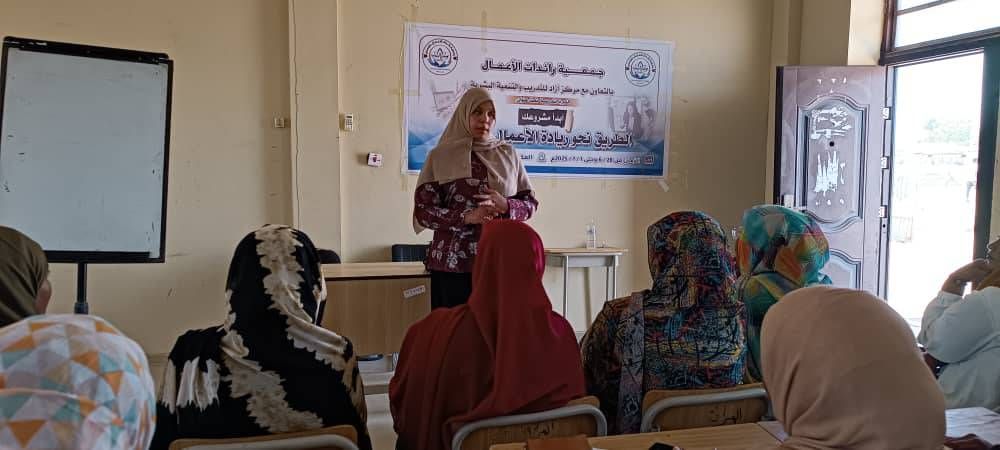
The White Nile Women Entrepreneurs Association launches a training course titled "Start Your Business." Source: Women Entrepreneurs Facebook page
Institutional and Community Support: Partnerships for Empowerment
Despite a weak support system and the absence of incentive policies, some organizations have emerged to economically empower women. UN Women, for instance, has launched programs in recent years aimed at improving women’s project management skills and access to finance, particularly in the states of Darfur, Blue Nile, and Kassala. The British Council has also implemented training programs through the “Women in the Economy” initiative, covering areas such as digital marketing, financial planning, and branding in collaboration with local partners.
On the community level, events such as Khartoum Lights have transformed from seasonal markets into interactive platforms connecting women entrepreneurs with consumers and potential supporters in a safe environment that celebrates local production. According to the organizers, over 70% of participants are women, half of whom are exhibiting in a public market for the first time.
Conclusion
The stories of Sudanese women entrepreneurs in this article reflect the spirit of resilience and creativity that defines Sudanese women. In the face of complex political and economic conditions, these women have managed to turn their passions and ambitions into successful ventures—ranging from large to medium and small-scale projects—that contribute meaningfully to building a more flexible and diverse economy.
The considerable challenges they face—from lack of capital and poor infrastructure to limited institutional support—have not weakened their resolve. On the contrary, they have fueled their determination to succeed and offer inspiring models for others. Supporting these women-led initiatives is not merely an individual gesture; it is an investment in Sudan’s future. Day by day, Sudanese women are proving that they are not just part of the solution—but leaders of change and architects of sustainable development.